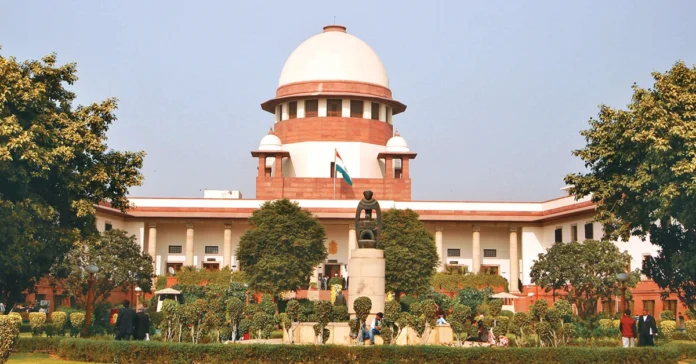The Election Commission of India (ECI) has told the Supreme Court that it had the statutory power to verify the eligibility of voters and ensure any person who failed to fulfil the mandatory requirements of eligibility was not included in the electoral rolls and further that every person fulfilling all the eligibility requirements did not get excluded from the electoral rolls.
The Commission said this in a counter-affidavit filed by Deputy Election Commissioner Sanjay Kumar in a batch of petitions challenging the Special Intensive Revision (SIR) of electoral rolls in Bihar.
This power flew directly from the provisions of Article 324 read with 326 of the Constitution, and Sections 16 and 19 of the Representation of People (RP) Act 1950.
Responding to the argument given by the petitioners that ECI was overstepping its jurisdiction by calling upon individuals to prove citizenship, the Commission said it was statutorily bound to ensure that only citizens of India were registered as voters.
The affidavit, while referring to Section 19, the Commission said one of the key eligibility criteria for registration in the electoral roll was that a person must be a citizen of India. It was the ECI’s duty to verify whether this condition was met, it added.
Rejecting the argument that the power to adjudicate citizenship vested solely with the Union government, the affidavit referred to Section 9 of the Citizenship Act 1955, which spoke of termination of citizenship only in cases of voluntary acquisition of citizenship of a foreign state.
It said the power was vested with the Central government as regards to when or how any citizen of India had acquired the citizenship of another country. It was only for this limited purpose that the exclusive jurisdiction had been vested in the Union of India, to the exclusion of all other authorities.
Other aspects related to citizenship could be inquired into by other relevant authorities for their purposes, including those who were constitutionally obligated to do so, that is, the Commission, the affidavit pointed out.
It also mentioned various provisions in the Constitution that required the establishment of citizenship in different contexts, such as, for claiming a particular fundamental right or for occupying certain constitutional offices.
The Constitution contemplated decisions by different authorities with regard to citizenship in the context of different purposes, noted the Commission.
The affidavit further said that necessary documents required to establish citizenship were within the special knowledge of the individual claiming to be a citizen of India. Given the nature of this evidence and the fact that such evidence ought to be within the personal knowledge of the individual concerned and not of the authorities of State, it was incumbent on the said individual to provide, such proof, it added.
Earlier on July 10, the Apex Court’s partial working days Bench of Justice Sudhanshu Dhulia and Justice Joymalya Bagchi directed the Commission to consider accepting the Aadhaar card, ration card and the voter ID card as acceptable citizenship documents for SIR of electoral rolls in Bihar.
The Bench further recorded the ECI’s submission that the list of 11 documents specified by it in its June 24 notification as acceptable documents to verify citizenship was an illustrative list, and not exhaustive.
The Apex Court held that since the list was not exhaustive, it would be in the interest of justice that the ECI considered the Aadhaar card, Electoral Photo Identity Card issued by the Election Commission and the ration card as acceptable citizenship documents.
The Bench made a verbal clarification that it was not ordering the Commission to include anyone’s name in the roll solely on the basis of these documents. ECI had the discretion to accept or discard these documents, however, the Commission should provide a satisfactory reason for the same.
While listing the batch of petitions challenging the ECI’s June 24 notification for further hearing on July 28, the Apex Court directed the Commission to file its counter-affidavit by July 21.
The Bench recorded that the petitioners were not pressing for any interim relief at this stage as the next hearing was listed before August 1, the scheduled date for publication of the draft electoral roll.
The top court of the country noted that the petitions raised an important question regarding the functioning of democracy in the country and the right to vote.
It said prima facie, the matter involved three major issues, including the power of the Election Commission to undertake the exercise, the procedure & the manner in which the exercise was being undertaken, and the timing, including the timing given for the preparation of draft electoral roll, asking for objections and making the final electoral roll, which was very short, considering the fact that elections were due in Bihar in November 2025.
The notification for the polls would come in advance weeks earlier, it added.


